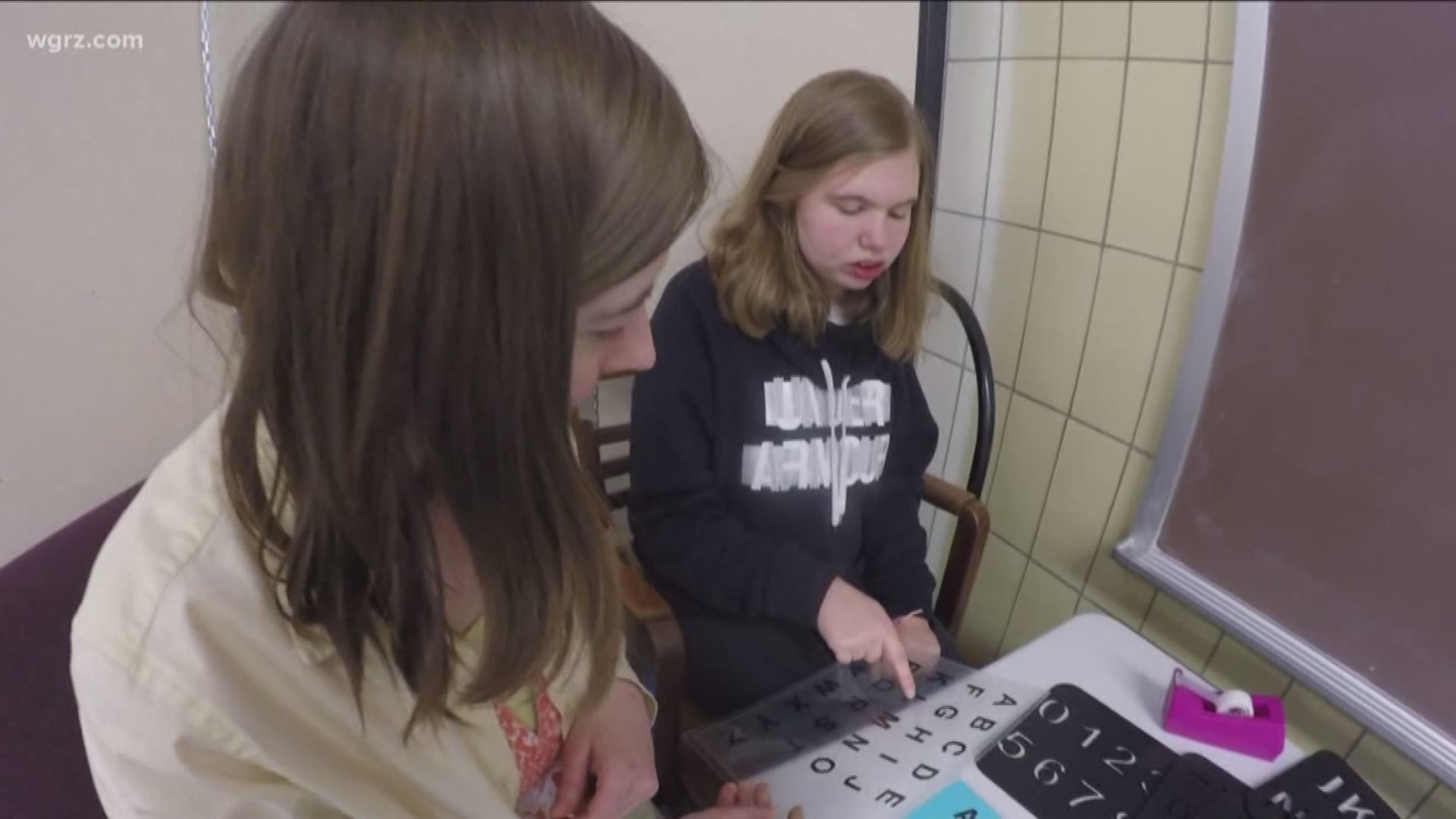DEPEW, N.Y. — Sunday school classrooms and the auditorium at Centerpointe Community Church were temporarily transformed into private learning spaces where children and teens with autism had the chance to work on expressing their thoughts and emotions.
Many of them can't actually talk, so they convey words and their feelings by pointing to letters on a stencil board. The students point slowly and are sometimes easily distracted, but their parents say it offers them an outlet they never had before.
Lori Fair, of St. Catharines, Ontario, tried various communication concepts with her son Logan, now 19, since he was about two years old. He responded minimally until they discovered something called rapid prompting method, or RPM.
The learning method involves constant, fast-paced questions and information in easy to digest pieces to keep the child engaged.
"I feel like we won the lottery. As a parent of an autistic child you're always waiting for what I call the silver bullet. Lots of people have breakthroughs in different areas. I wasn't going to give up, but I felt like I was coming to the end of the trail maybe. And then this happened," said Fair.
Fair was skeptical at first but said she saw a spark in Logan that she had never seen before. She says he spells out things he wants or needs, how he's feeling, and even thoughts on politics.
For Logan RPM is a window into his mind that was previously locked tight.
Laurie Bernstein had a lot of people doubt her when she introduced her son, Maxwell, to RPM, but, like Fair, she said her son was able to express words that were trapped inside by pointing and spelling.
"Having a window, giving him an outlet to express some of the things he is going through, things he wants to have help with, we could actually sort of put together a plan, talk about what we can do to help him," said Bernstein.
Bernstein and another mom, Lisa Clinton, recently started a non-profit called Buffalo RPM. The group brings teachers and RPM experts to Western New York for workshops. The parents and children also meet for social outings. It's as much about learning as it is support.
"We all had different levels of success. We had all seen some progress, so we thought why wouldn't we want to share this with other people, give people that support that maybe we didn't have when we first started," said Clinton.
Clinton's daughter, Kaylie, has been doing RPM for a few years now. She points to the letter board and types to spell out answers. She's also recently started working on handwriting. She's in high school now and even takes several regular classes.
Despite her successes, Kaylie — like many other kids with autism — still has a lot of struggles. She has problems with body control, anxiety, and aggression.
Her mom says she knows that RPM isn't for everyone and says by no means is it a cure-all.
"It doesn't fix autism. It doesn't cure autism. We're not out there trying to tell anybody that it does or that you should stop doing other things that you are doing," said Clinton. "I can only speak to what I know —the experience I had with Kaylie and other kids in the community. Their lives have just improved drastically."
There are no clinical studies to prove RPM works, but there's anecdotal evidence from families all across the country that have found success and hope through RPM.
"When you're doing an RPM lesson, you're trying to teach your child something. Learning is never harmful. Also, we are giving them a tool to express themselves and to express the knowledge that they are learning," said Bernstein.
"[Her son Maxwell] could take the 'red pill,' and we could live the rest of our lives thinking he's developmentally disabled, and we're just going to make him as happy as can be and hope for the best. Or we take the 'blue pill' and we presume competence, and we're going to do everything we can to make sure he can at least achieve communication and expression," said Bernstein.

